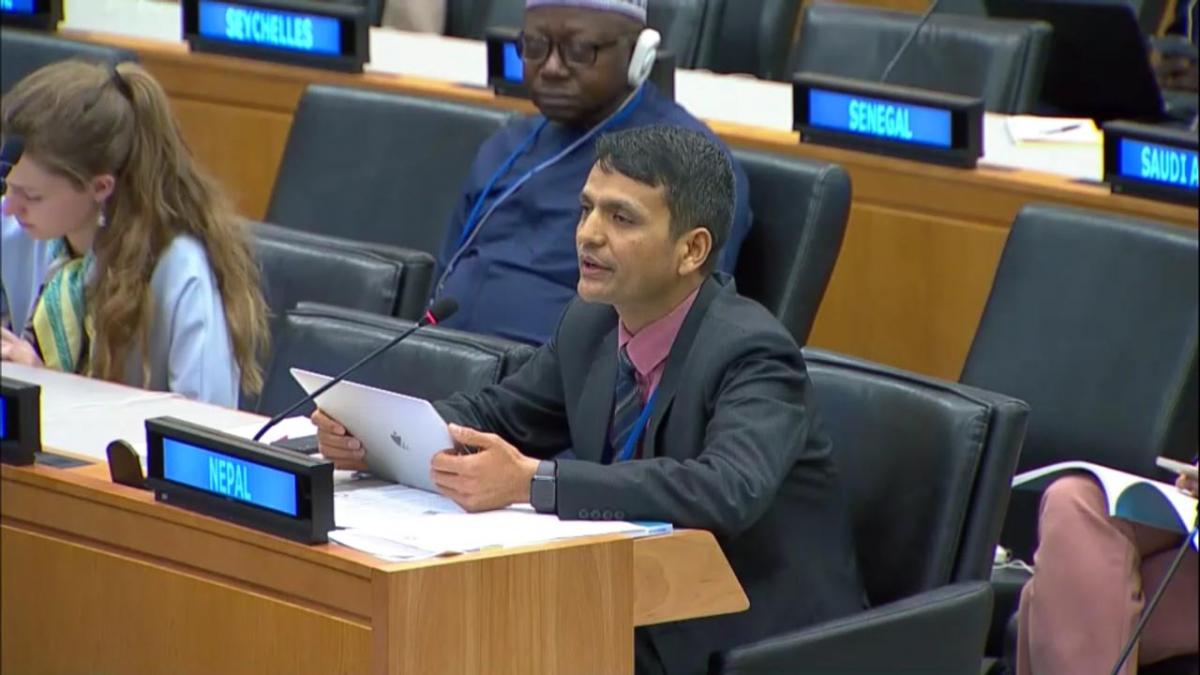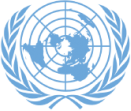
Thank you, Mr. Chairman.
I would first like to thank the United Nations Secretary-General for the comprehensive report produced under this Agenda Item.
I align my statement with those of the Group of 77 and China and the Group of LDCs delivered by the State of Palestine and Bangladesh respectively, and present four points in my national capacity.
First, implementation of WSIS outcomes is critical.
Progress in implementing the WSIS outcomes is noted but it is still far below the pace required for achieving the WSIS vision and realizing SDGs by 2030.
Nepal reiterates its call for an effective implementation of the WSIS outcomes (including the Tunis Agenda) in synergy with the 2030 Agenda.
Second, availability, accessibility and affordability of ICTs are key to bridging the digital divide and achieving SDG 9 C. of ensuring universal access and contribute to overall SDG implementation.
Many people use internet now and the number crossed the half of the global population in 2018, as ITU notes.
But the old problem of digital divide is still wide, between the developed and developing countries, and between the urban and the rural. We also have to address gender divide.
When it comes to countries like LDCs and LLDCs, the divide is the widest.
This requires a more collaborative work, more cooperation and support in favour of needy countries and peoples.
A multi-stakeholder approach with a focus on the leading work of the private sector in ICTs should be in place to addressing the digital divide. More investment in ICT infrastructure, transferring technology and ICT know-how are equally important.
Similarly, full operationalization of the Technology Bank for LDCs is of critical importance.
We should also support the ongoing work of ITU.
Third, at the national level, we have an ICT vision to transform Nepal into an information and knowledge-based society and economy.
ICTs is an integral part of Nepal’s aspiration for rapid economic growth and development. Our ICT policy takes into account our national context and challenges facing us. Digital Nepal Framework is in being implemented to fully unlock our growth potential.
We have realized that ICTs contribute immensely in the field of disaster risk reduction, public service delivery and good governance. There is already a notable progress.
But we are also cognizant of the fact that more and sustainable progress depends on ICT knowledge, expertise, technology and resources as well as capacity building.
Fourth, more cooperation is required to tap opportunities and address gaps and challenges.
Digitization as the main character of emerging information society is transforming everything.
Similarly, AI, automation, robotics, algorithmic decision-making and other forms of frontier technologies are transforming the nature and quality of work and employment relationships while posing more risks.
The world of work is changing rapidly, so are economic production and commerce.
E-commerce in particular is extremely useful for LLDCs. In this regard, we thank UNCTAD for carrying out Nepal Rapid eTrade Readiness Assessment.
Cybersecurity and privacy issues loom large in the world that still struggles for legislation. More understanding is required for internet governance.
Information society cannot be separated from knowledge society. Human relations cannot be replaced by anything. We have to address these critical issues before it is too late.
In conclusion, Mr. Chairman, we should work closely and at all levels for implementing the WSIS vision of a people-centred, inclusive and development-oriented information society to materialize the principles of ‘leaving no one behind’ and ‘reaching out to the furthest behind first’ that underpin the 2030 Agenda. This requires fruitful collaboration and partnership, particularly between governments and the private sector.
I thank you.


